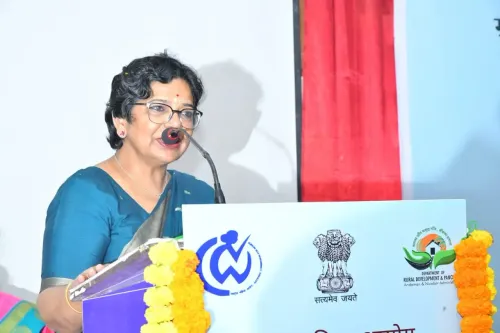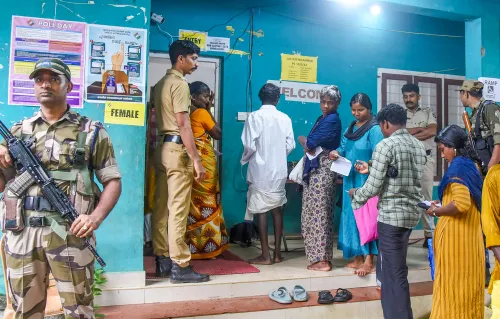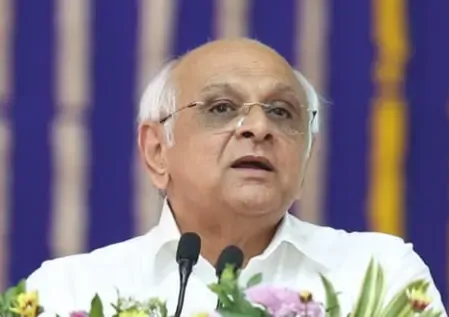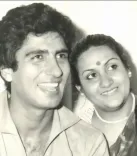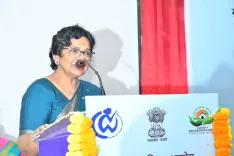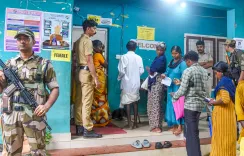What Directions Should India Take at the Aravalli Summit 2025?
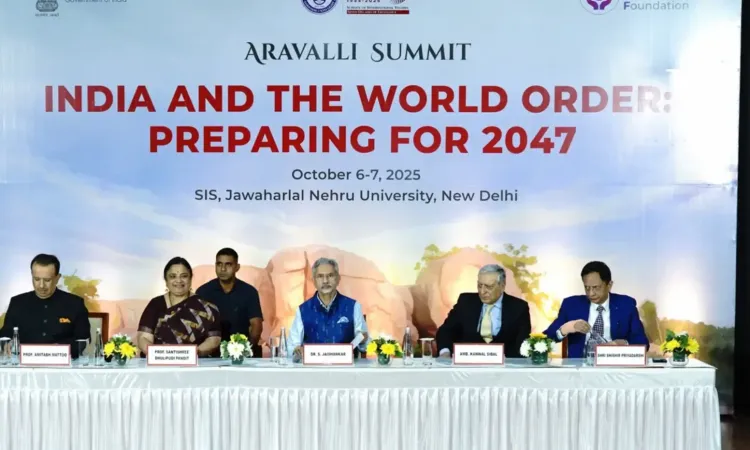
Synopsis
Key Takeaways
- India's strategic role in a multipolar world is under discussion.
- The summit emphasizes a Bharatiya-centric narrative for global engagement.
- Challenges such as geopolitical instability and supply chain disruptions are being addressed.
- Key leaders highlight the importance of prioritizing national interests in foreign policy.
- Collaboration between academia and government is pivotal for policy innovation.
New Delhi, Oct 6 (NationPress) Amidst the rising tide of geopolitical instability and evolving power structures, India's leading scholars and diplomats gathered at the inaugural Aravalli Summit 2025 to define the country's trajectory towards 2047.
Organized by Jawaharlal Nehru University's (JNU) School of International Studies (SIS) in partnership with the Ministry of External Affairs, this two-day event celebrates the 70th anniversary of SIS, a pivotal institution in shaping India's strategic discourse since its establishment in 1955.
Under the theme "India and the World Order: Preparing for 2047," the summit attracted policymakers, academics, and diplomats aiming to merge traditional insights with modern strategies, crafting a narrative centered on India's global engagement.
In his keynote address, External Affairs Minister S Jaishankar set a compelling tone, stressing that India's growth must navigate significant global changes, including disruptions in supply chains and the weaponization of technology and finance.
"India must function within a multipolar environment while positioning itself as a central pole," stated Minister Jaishankar, highlighting a shift from conventional balance-of-power diplomacy to a focus on the "margins of power" amidst increasing global competition.
He cited challenges such as the concentration of global manufacturing—hinting at China—and the rise of anti-globalization sentiments, urging India to place national interests above all in its foreign policy.
The minister also discussed regional dynamics, emphasizing the need to "de-hyphenate" India from competitors like Pakistan by surpassing them in power and capability, while accommodating neighbors only as far as national interests allow.
The opening remarks resonated with these concerns, with JNU Chancellor Kanwal Sibal warning of a "managed disorder" in international relations, intensified by the very forces that shaped the post-1945 order—the United States.
"This disorder is propelled by a nation that played a significant role in shaping the global framework established in 1945," Sibal noted, pointing to the reversal of globalization's benefits, such as interconnected supply chains and technology transfers, amid growing inequalities and shifts in power eastward.
He underscored China's rise as the world's second-largest economy and a neighboring country with unresolved territorial disputes, which presents "major implications" for India.
Sibal praised JNU as the ideal venue for the summit, commending organizers for a comprehensive program addressing contemporary issues.
Prof Santishree D Pandit, JNU's Vice Chancellor and the first female alumnus to hold the position, reflected on SIS's legacy of inclusivity, drawing connections from Kashmir to Kanyakumari, and acknowledging contributors like Hina Kunzru and Dr APA Abdul Durai for integrating dharmic principles into international studies.
"The Aravalli Summit aims to transcend the confines of knowledge and cultivate Bharatiya-centric narratives of our dharmic civilization," she stated, linking "tradition with modernity, realm with region, myth with reality, and theory with practice."
Pandit acknowledged Prime Minister Narendra Modi's government for "breaking three glasses," a metaphor for dismantling institutional barriers, and for being "more revolutionary than [the] left" in promoting progressive reforms.
Her comments celebrated SIS's 70-year journey, noting its evolution into a hub that shapes India's global perspective, with alumni in crucial diplomatic positions. Shishir Priyadarshi, President of the Chintan Research Foundation—a young think tank focusing on evidence-based policy—highlighted India's progress from contributing less than 3 percent of global output at independence to over 7 percent today, positioning it as the world's fourth-largest economy on its way to third.
"What will India look like in research by 2047? An emerging economy that responds to external agendas, or a developed nation that defines its own agenda... grounded in fairness and equity?" he challenged, embodying the summit's forward-looking spirit.
Diving into his 25 years of experience at the World Trade Organization (WTO), Priyadarshi recounted India's journey from an overlooked participant to a crucial voice, crediting leaders like former Foreign Secretary S Jaishankar for shifting foreign policy from "cautious engagement to strategic autonomy."
He detailed Chintan's initiatives across trade, climate, and geopolitics to "cross-pollinate ideas" and promote comprehensive solutions, aligning with the summit's collaborative ethos.
The event, held at JNU's Convention Centre and live-streamed on YouTube, features panels discussing economic resilience, strategic autonomy, and digital diplomacy, with attendance by invitation only.
As SIS commemorates seven decades of cultivating India's international proficiency—from its beginnings as a center for non-aligned thought to its current role as a driver of policy innovation—the summit symbolizes a critical juncture.
With global volatility—from tariff wars to AI rivalries—intensifying, speakers united in a call to action: India must grasp the "pen" of destiny to script a multipolar future on its own terms.
The summit continues on Tuesday, promising in-depth explorations of these challenges in a world where, as India’s EAM Jaishankar pointed out, "the world is witnessing more competition and fewer compacts."

